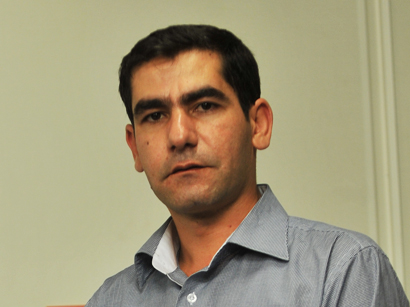By Dalga Khatinoglu
Iranian Ex-President Mahmoud Ahmadinejad hit the record with a total of 119 foreign trips during his eight years presidency by attending to Latin America, six times to Venezuela, three times to Bolivia and two times to Brazil, Nicaragua, Cuba and Ecuador.
Venezuela's late president Hugo Chavez who called Ahmadinejad the "gladiator of the anti- imperialist battle" also had visited Iran nine times since 2005 and signed more than 100 contracts worth tens of billions dollars, of which almost all of them have been canceled.
Venezuela, after China (with $45 billion worth of contracts) ranks first in term of the number of contracts with Iran, but these contracts mostly faced delay or cancellation.
After all of these agreements, Iran's exports to Venezuela were only $19.4 million, during Ahmadinejad's last year as president and the figure increased by 5.2 times and reached $120 million during Iran's last fiscal year, ended on March 2014, according to Iran's Custom Administration reports. Iran imported nothing from Venezuela during last year. The share of Venezuela in Iran's total exports is about 0.38%.
The more outstanding contracts between Tehran and Caracas were those linked to the energy sector, including the establishment of a joint oil company called "VENIROC" between Iran's Petropars and Venezuela's state oil company PDVSA.
Now, Iran's Oil Ministry after closing National Iranian Oil Company's office in Bolivia on April 7, announced that its second oil office in South America, Venezuela was closed on May 7.
The main contracts includes establishment of a joint bank called the Iranian "Venezuelan Bi-National Bank" with 1.2 billion funds, which was sanctioned by the U.S. in September 2013; as well as the contracts for developing Venezuela's Ayacucho Block 7 and Dobokubi oil fields, construction of $20 billion-worth Liquid Natural Gas (LNG) plant with 10 million tonnes annual capacity in the Delta Caribe area, alongside Venezuela's 10 percent share in an Iran's LNG project with 5.4 million tonnes of production capacity, as well as bulging four tankers (about $300 million) and an offshore platform yard ($130 million) for Caracas by Iran's Sadra Company.
Iran and Venezuela also have signed contracts to construct two methanol production plants with $500 million worth.
None of them has been implemented, with the exception of two medium-sized Aframax oil ships, which Caracas has refused to accept or pay for.
Salman Zarbi, the managing director of Iranian shipbuilding company, Sadra said last September that Venezuela hasn't paid off Iran's first delivered tanker yet and refuses taking the second one.
The National Iranian Oil Company has signed several oil contracts and agreements with the South and Central American countries such as Bolivia, Venezuela, Ecuador, Cuba, and Nicaragua during Ahmadinejad's presidency, non of them has started.
Iran and Venezuela, with ambitious targets in other regions, also started signing several joint contracts in Africa and the Middle East, includes building a refinery with a daily 140,000 barrels refining capacity in Syria.
Another agreement was reached between PDV Marina, PDVSA's shipping subsidiary, and the Islamic Republic of Iran Shipping Lines (IRISL Group), to create a maritime oil transport firm that will enable Caracas to sell more than 500,000 barrels of crude in Europe and Asia.
Iran also has pledged to build 50,000 homes in Venezuela to help alleviate a housing shortage in the South American country.
Now, the managing director of National Iranian Oil Company (NIOC), Roknoddin Javadi has said that the company will gradually close its offices across Latin America as well in the near future.
He went on to note that keeping the offices open is not economically justified, adding that the offices only served political purposes.
Dalga Khatinoglu is specialist on Iran's energy sector and Iran News Service head in Trend Agency
Edited by C.N.






